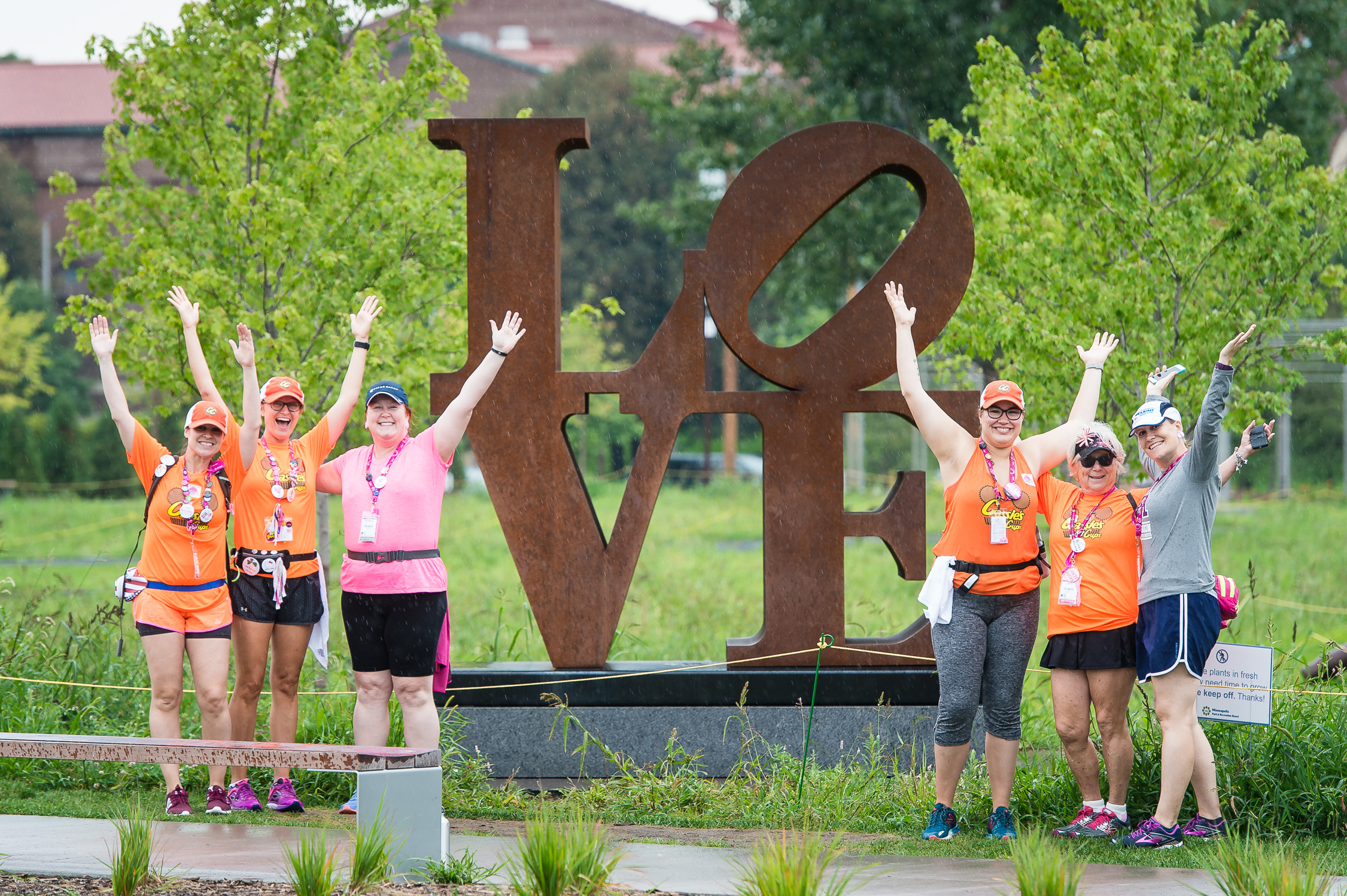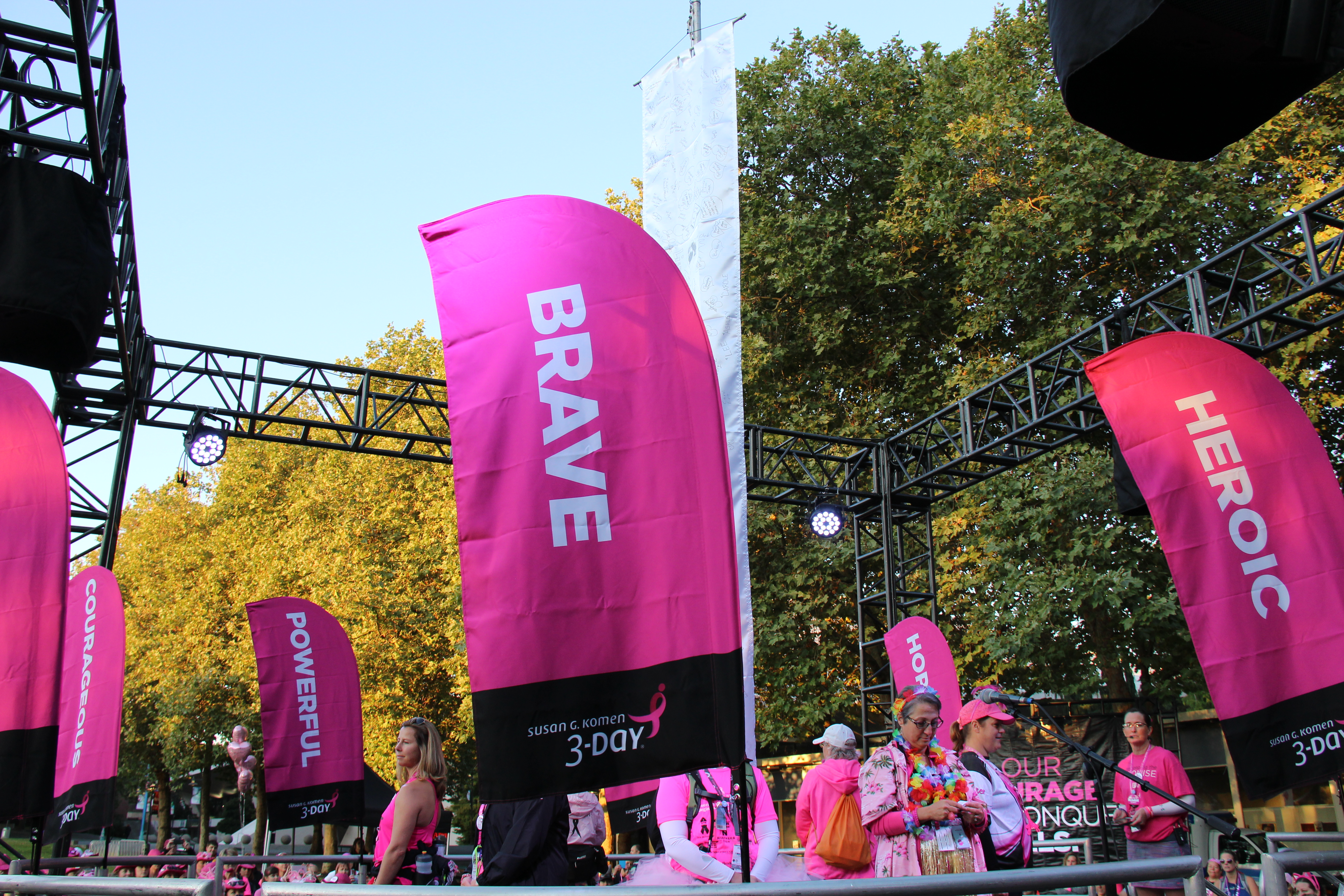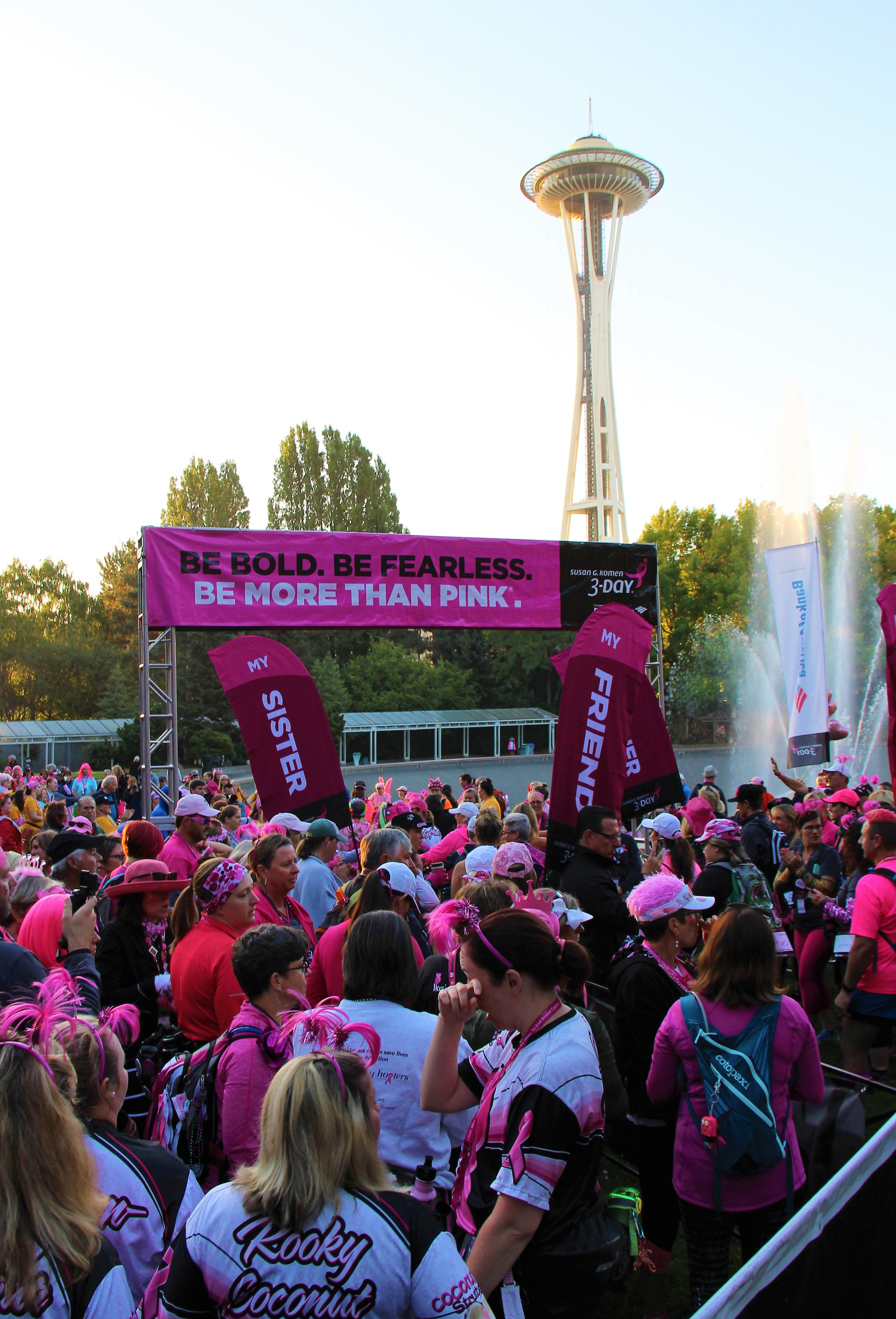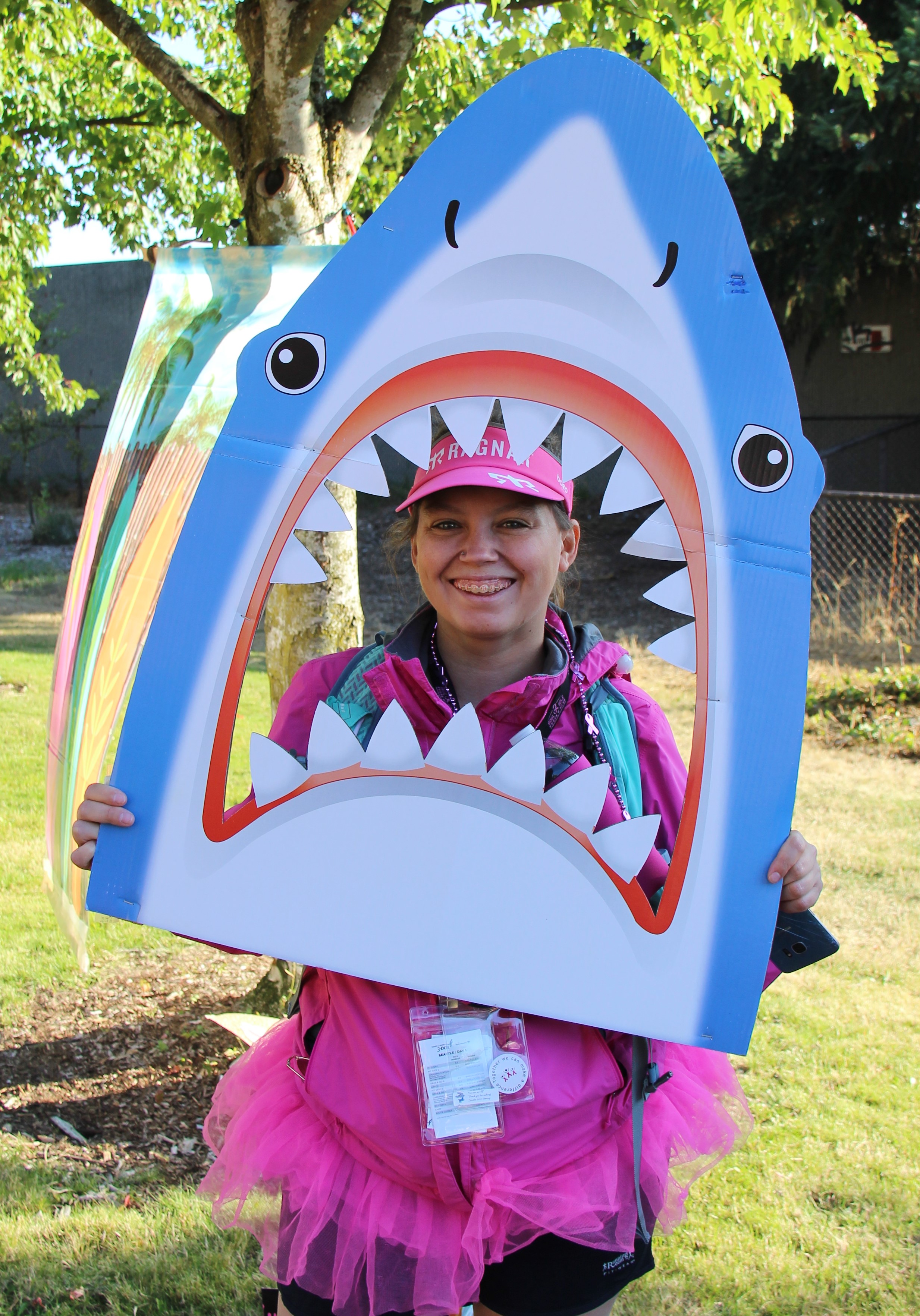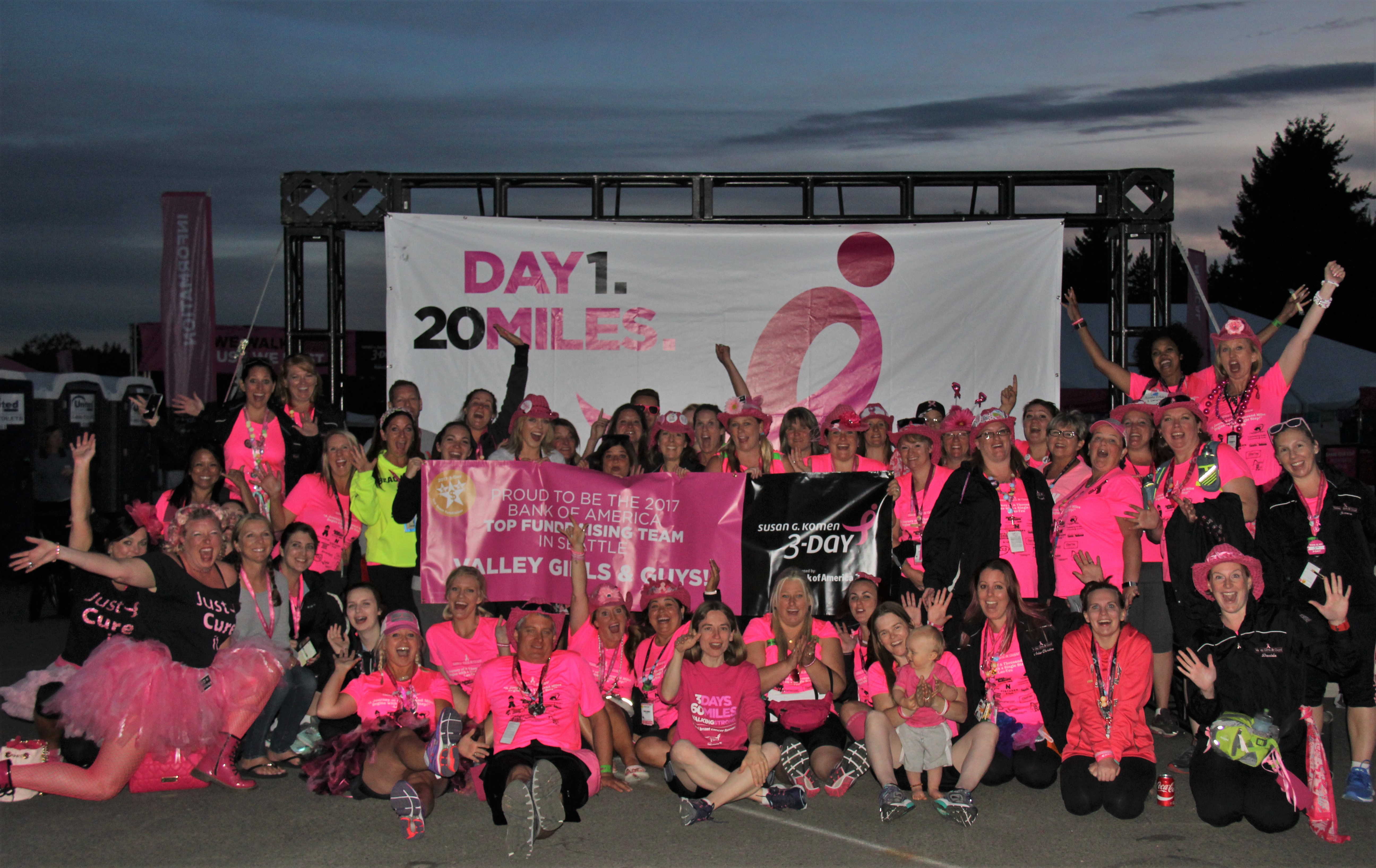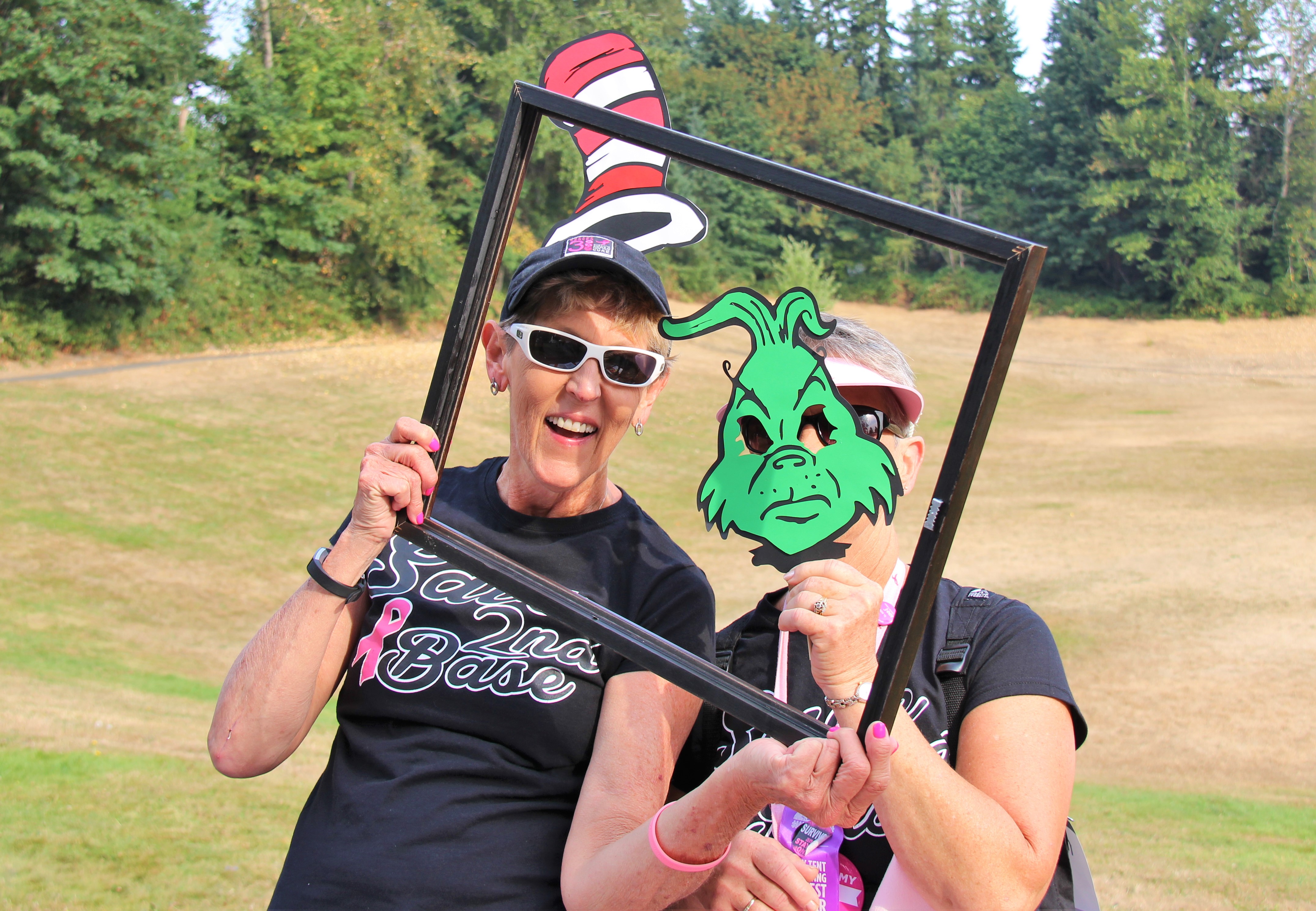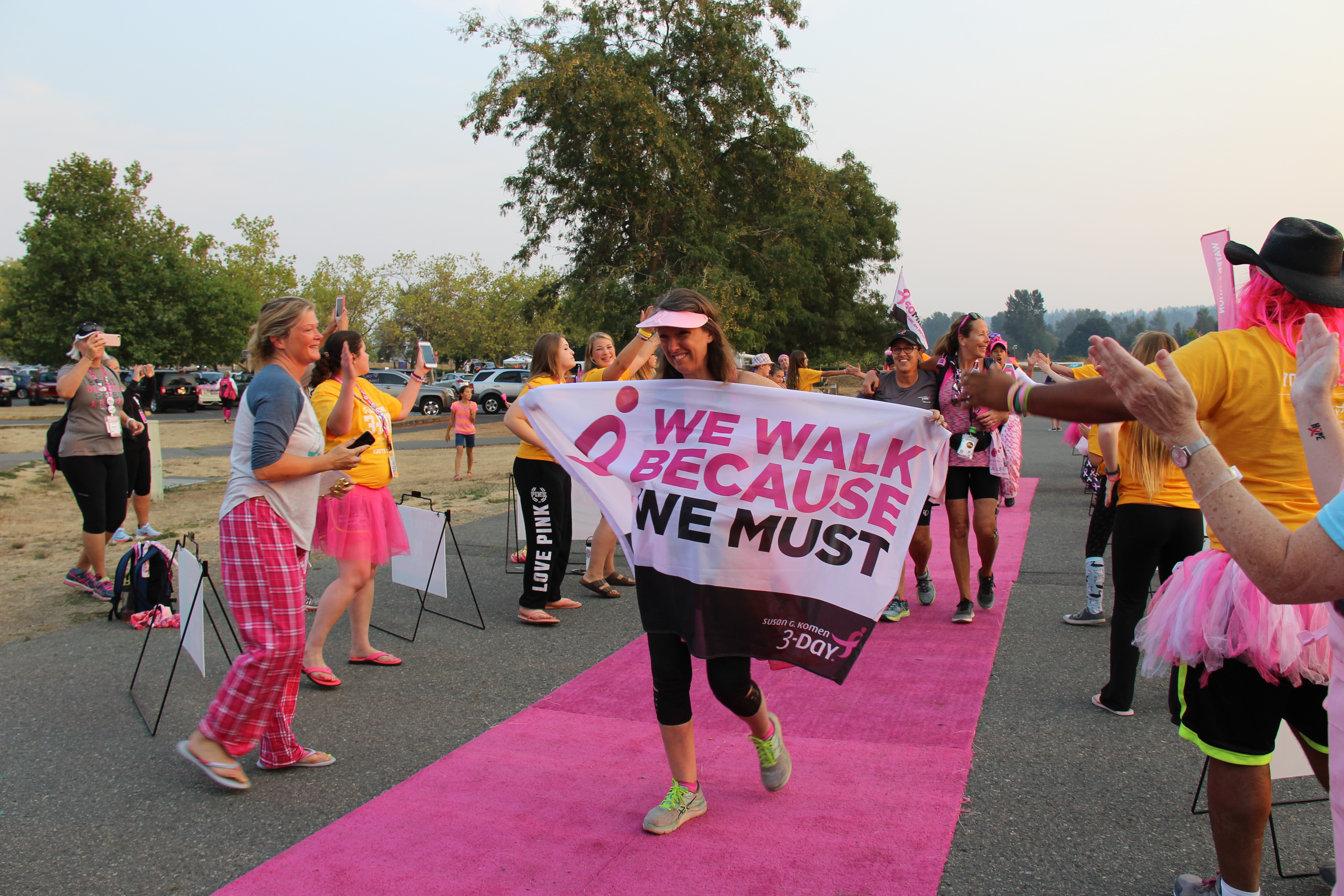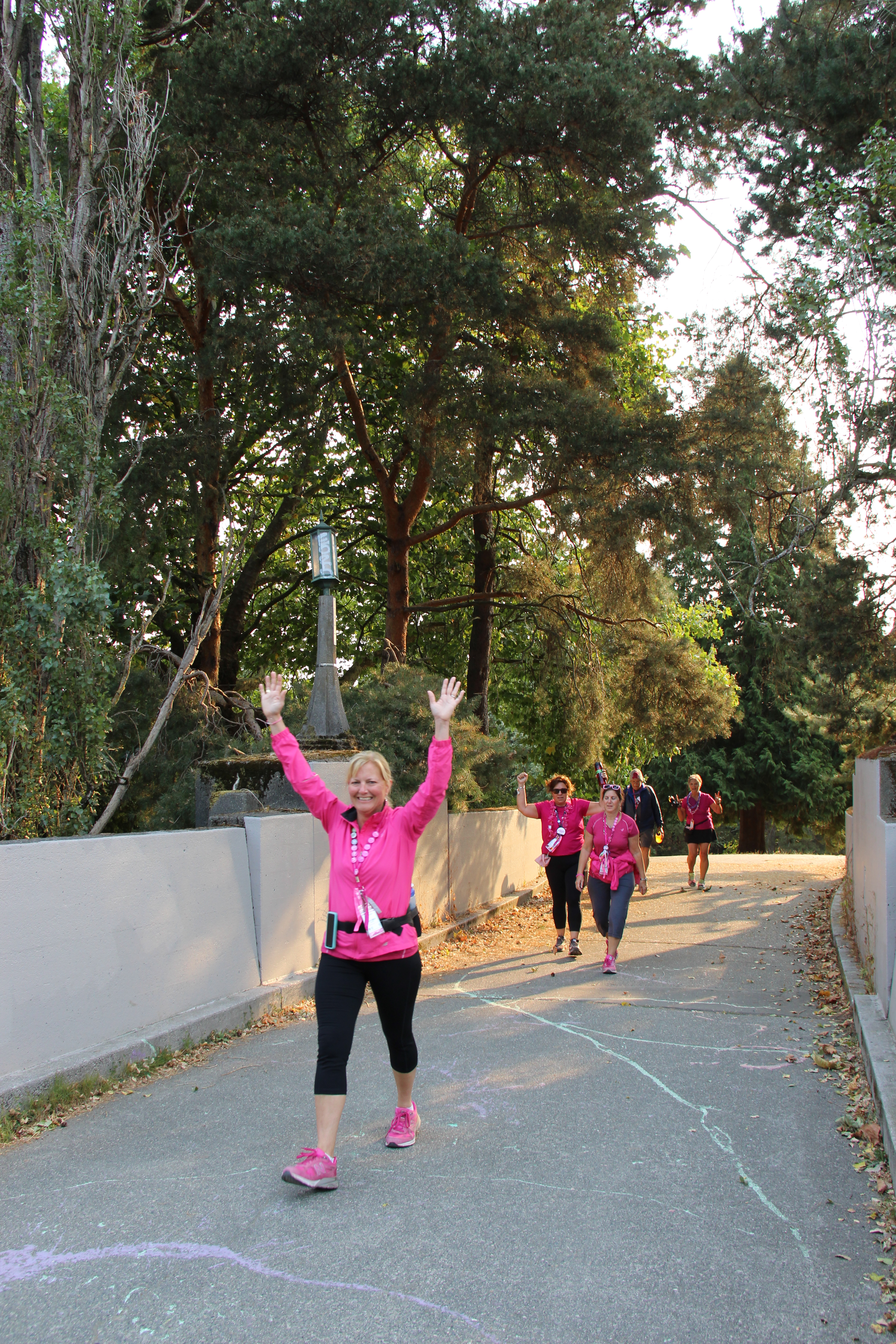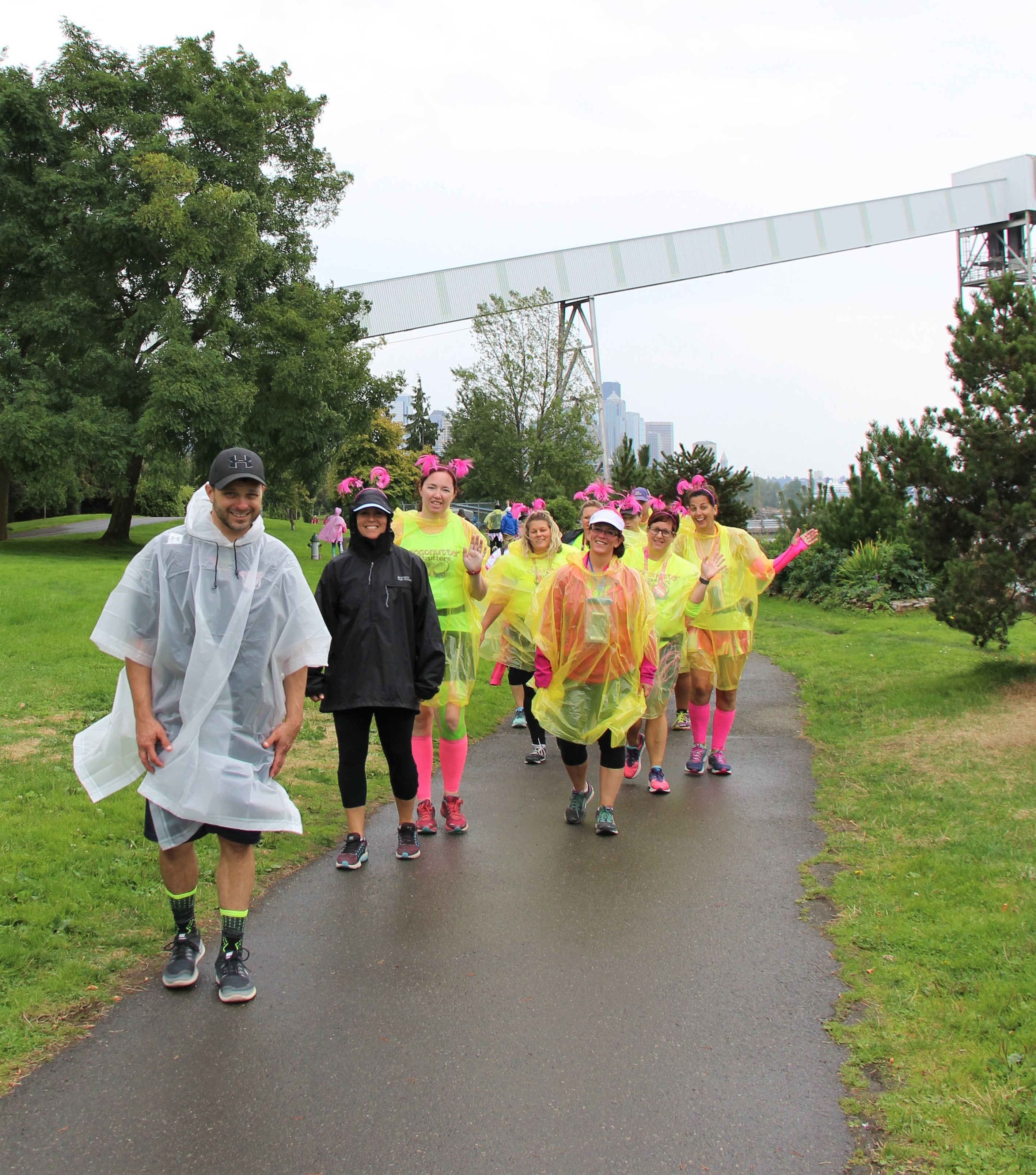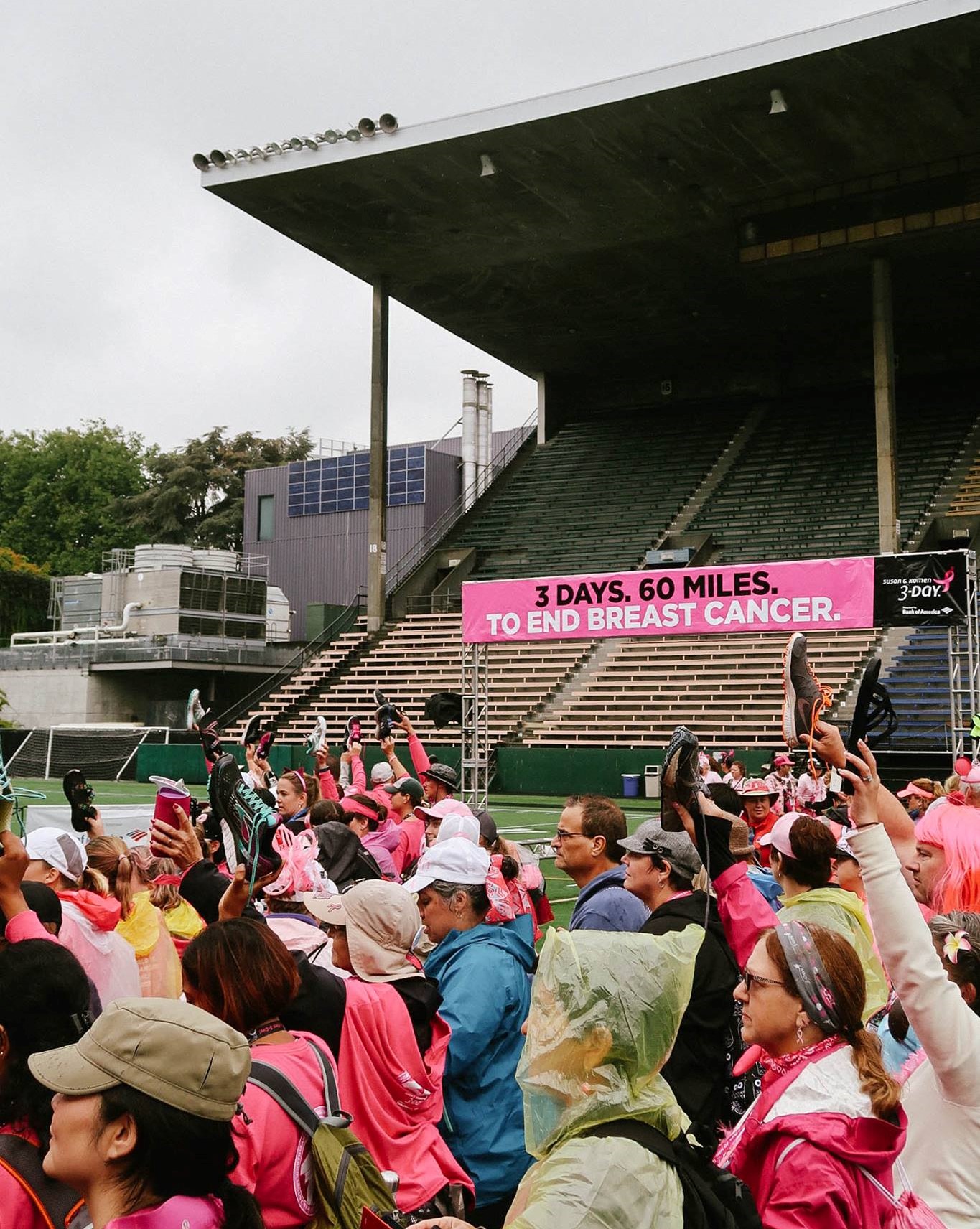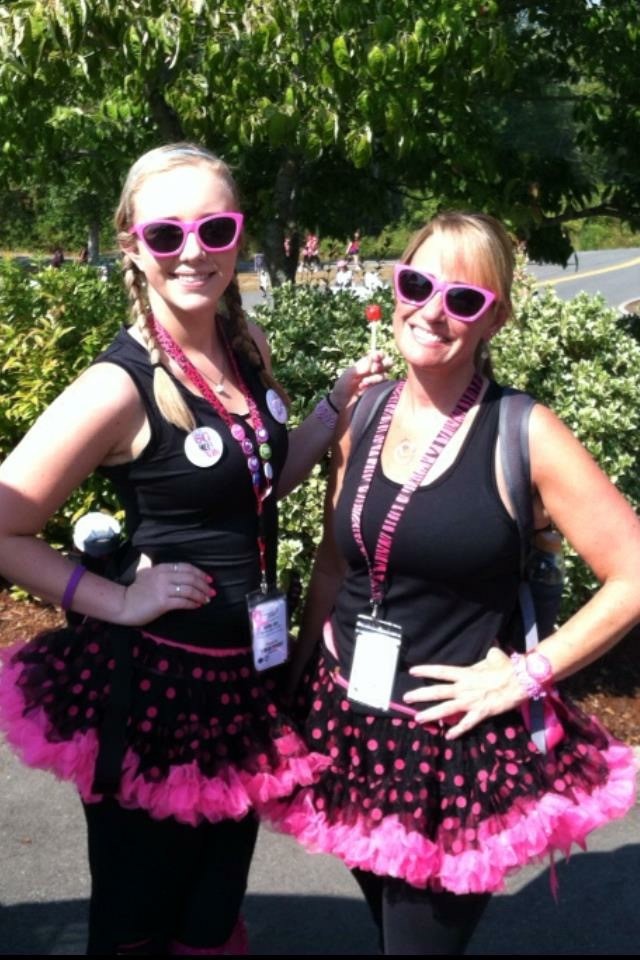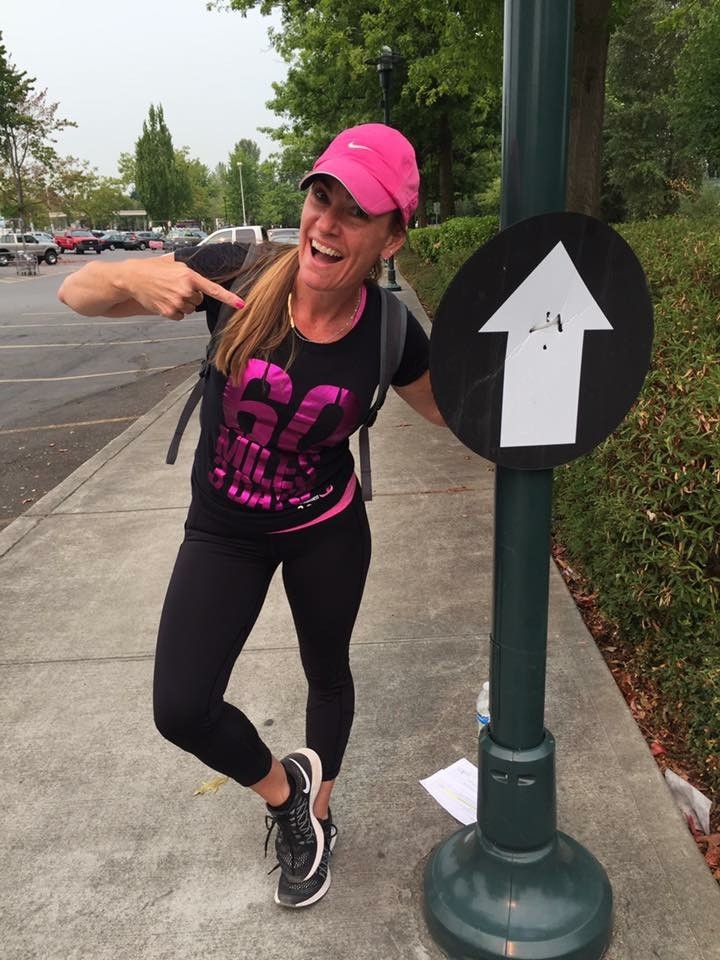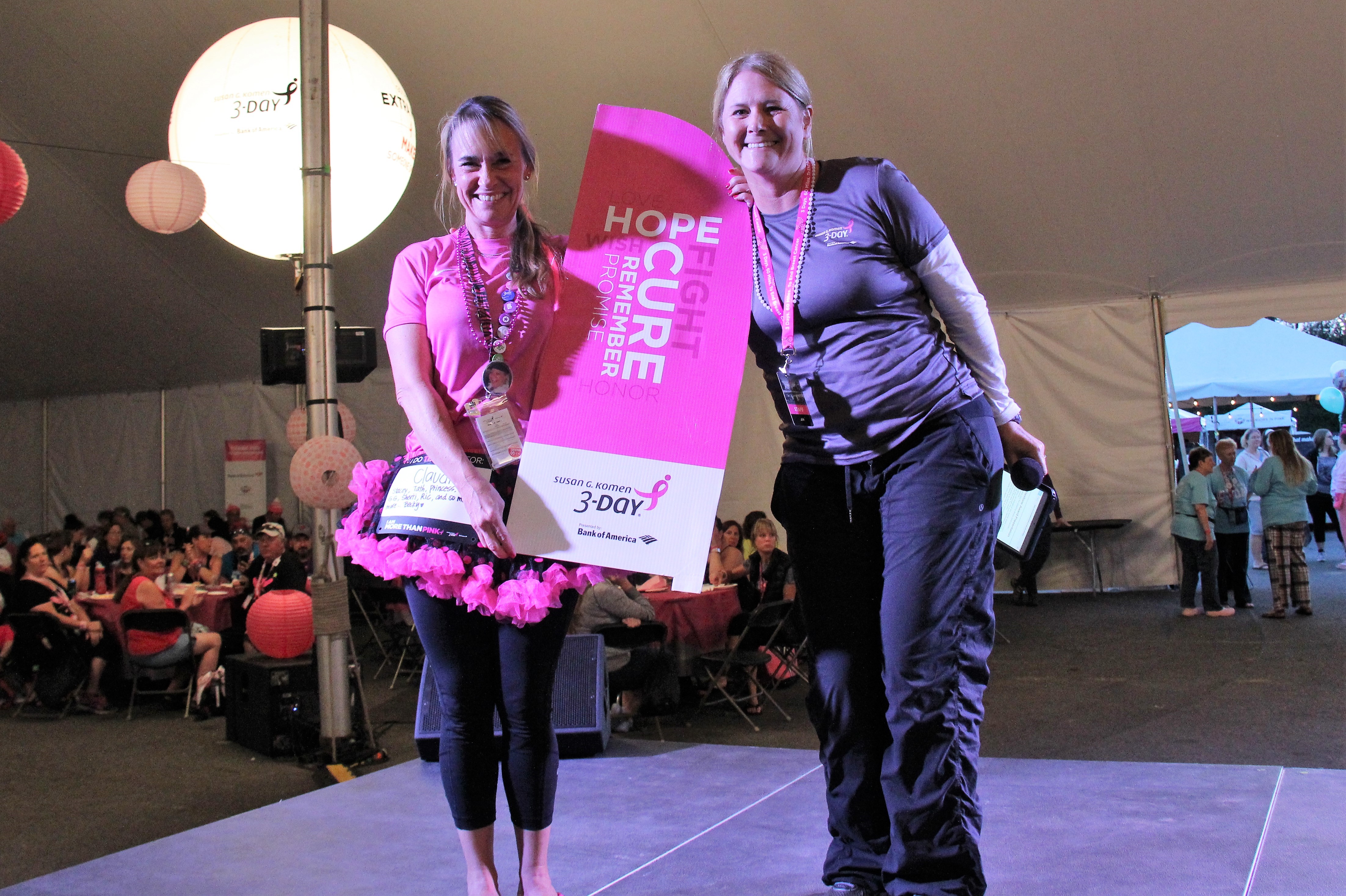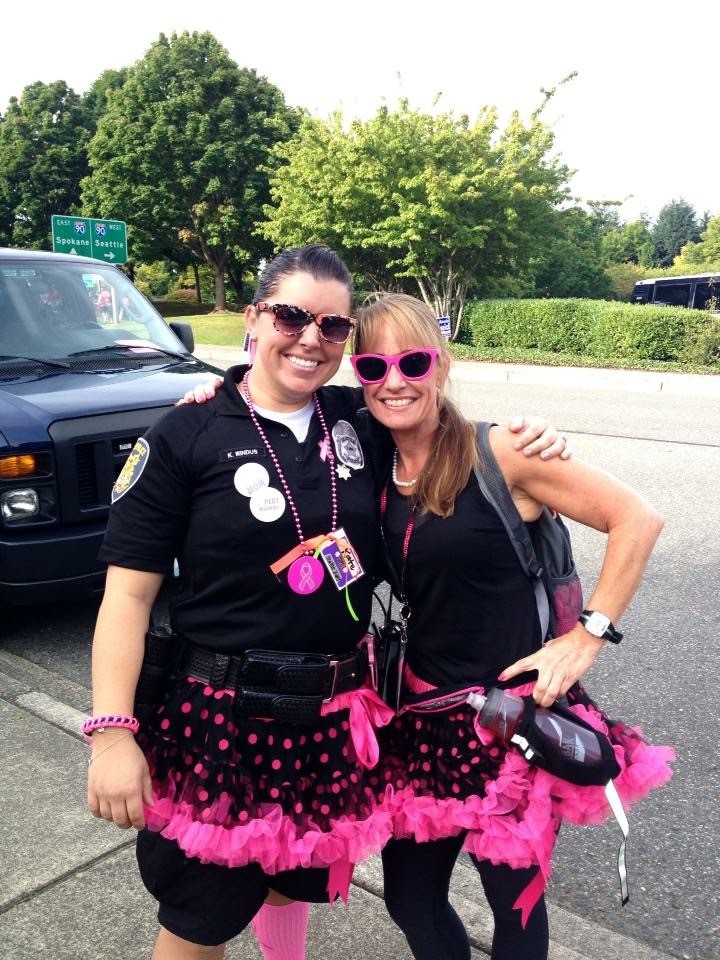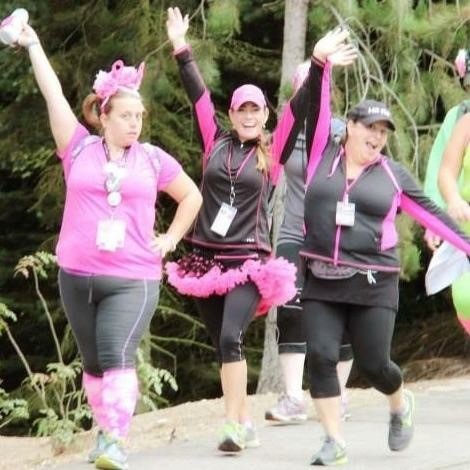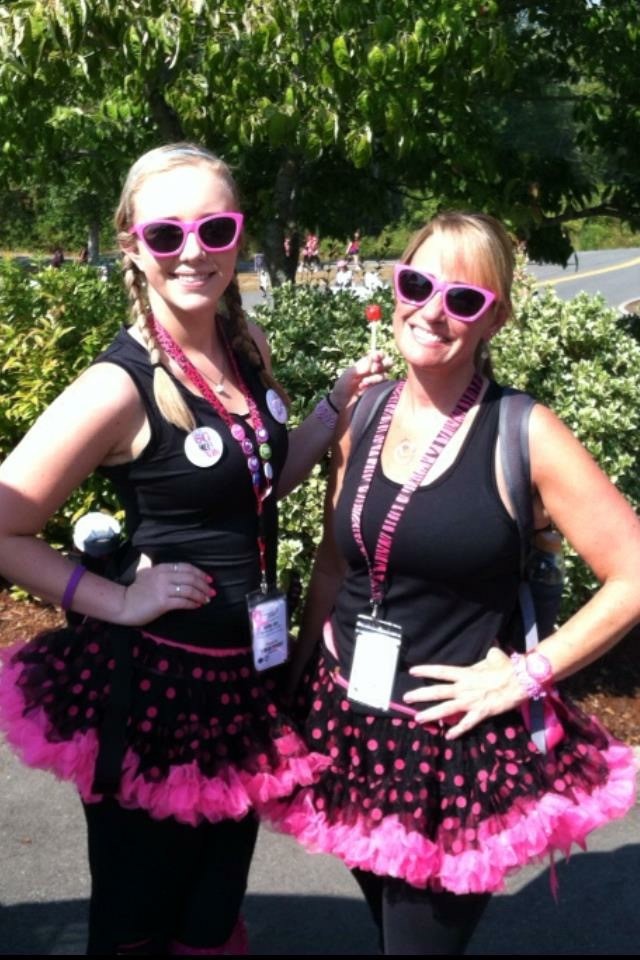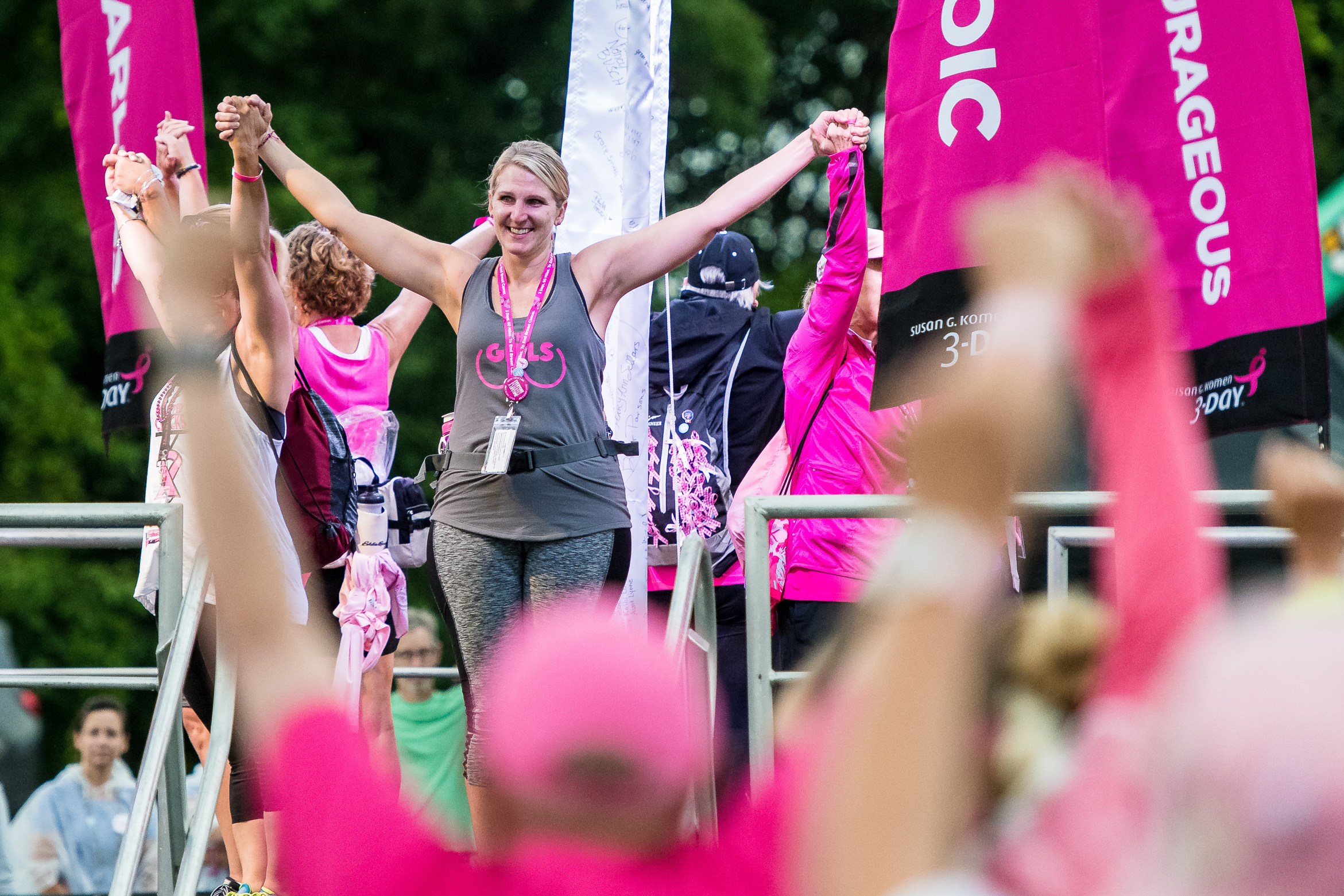
Opening Ceremonies
Dr. Welm, can you tell us a bit about what led you to do breast cancer research?
Although I do not have a family history of breast cancer, cancer has greatly affected my family. I work closely with many patient advocates in breast cancer research, and have seen far too many succumb to breast cancer. As our population ages, I believe that cancer will surpass heart disease as the leading killer. Since breast cancer is the most common deadly cancer in women, I am extremely motivated to make a difference toward eliminating this disease that affects so many.

Dr. Alana Welm
On the Route
Since we’ve got some time, could you tell us a bit about your current research?
So far, our most important findings are centered on understanding how metastatic (or Stage IV) tumors arise, and the role the cells around the tumor play in regulating that process. We discovered that the RON kinase protein regulates metastasis and makes it easier for metastatic tumors to grow. We’ve shown that RON kinase inhibitors can block this process and reduce metastasis. We are now launching a new clinical trial to test a RON kinase inhibitor in breast cancer patients with bone metastasis, and we hope this study will help to determine the potential effectiveness of this drug in preventing and treating breast cancer metastasis.
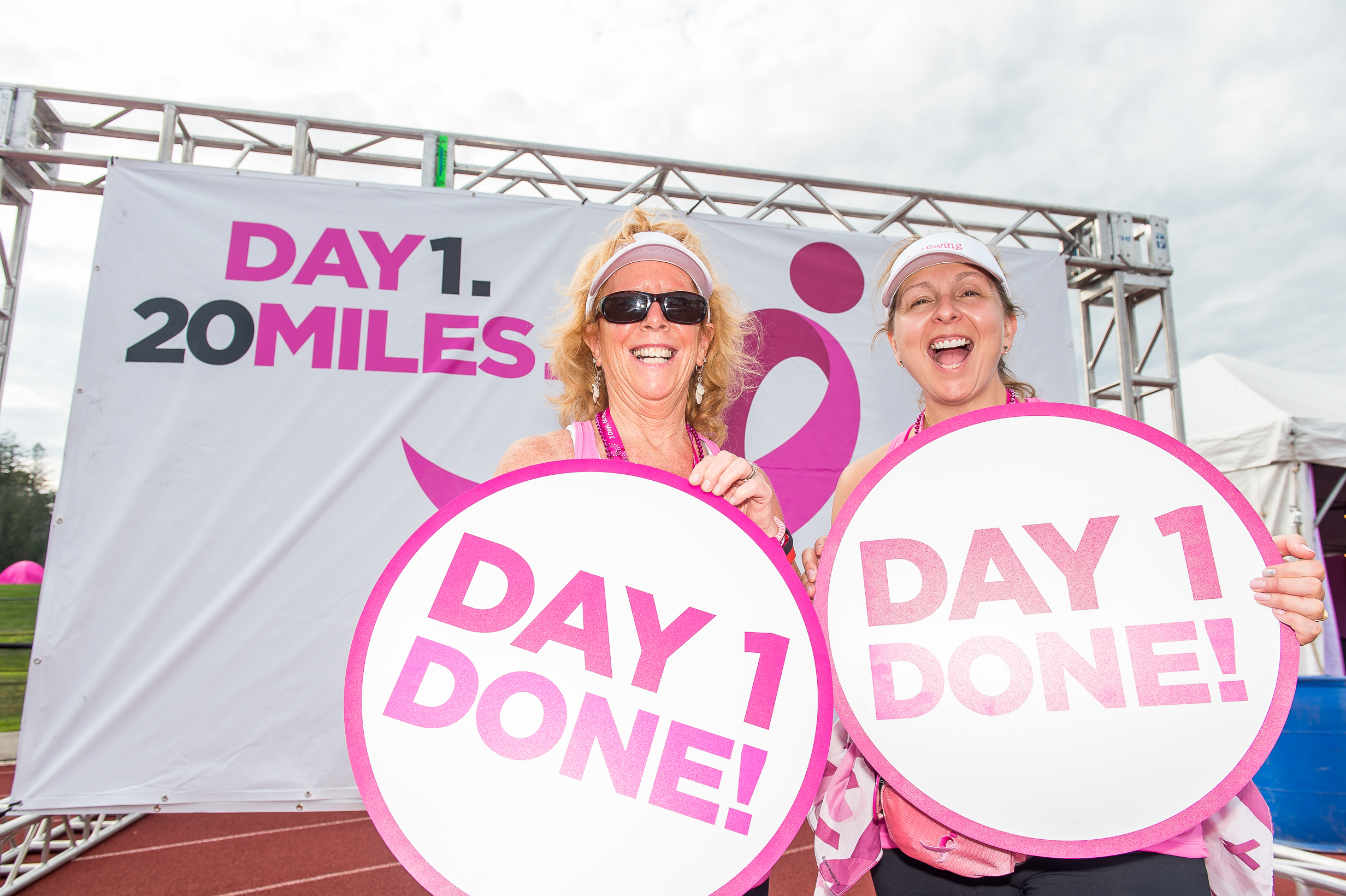
At Camp
Now that we’ve made it “home” for the night and are enjoying the support of our crew, can you tell us about how your work would be affected without Komen funding?
I was very lucky to be the recipient of a Komen postdoctoral fellowship when I was a postdoctoral fellow at the University of California, San Francisco, which launched my independent career. The findings from that work led to my current faculty position, which I started 10 years ago. As a young principal investigator, I received a Komen Career Catalyst Award and, more recently, the Komen Leadership Award as a Komen Scholar. Several of my postdocs have received Komen fellowships as well and continued their careers in breast cancer. Without Komen funding, it’s hard to imagine what my lab would be doing now!
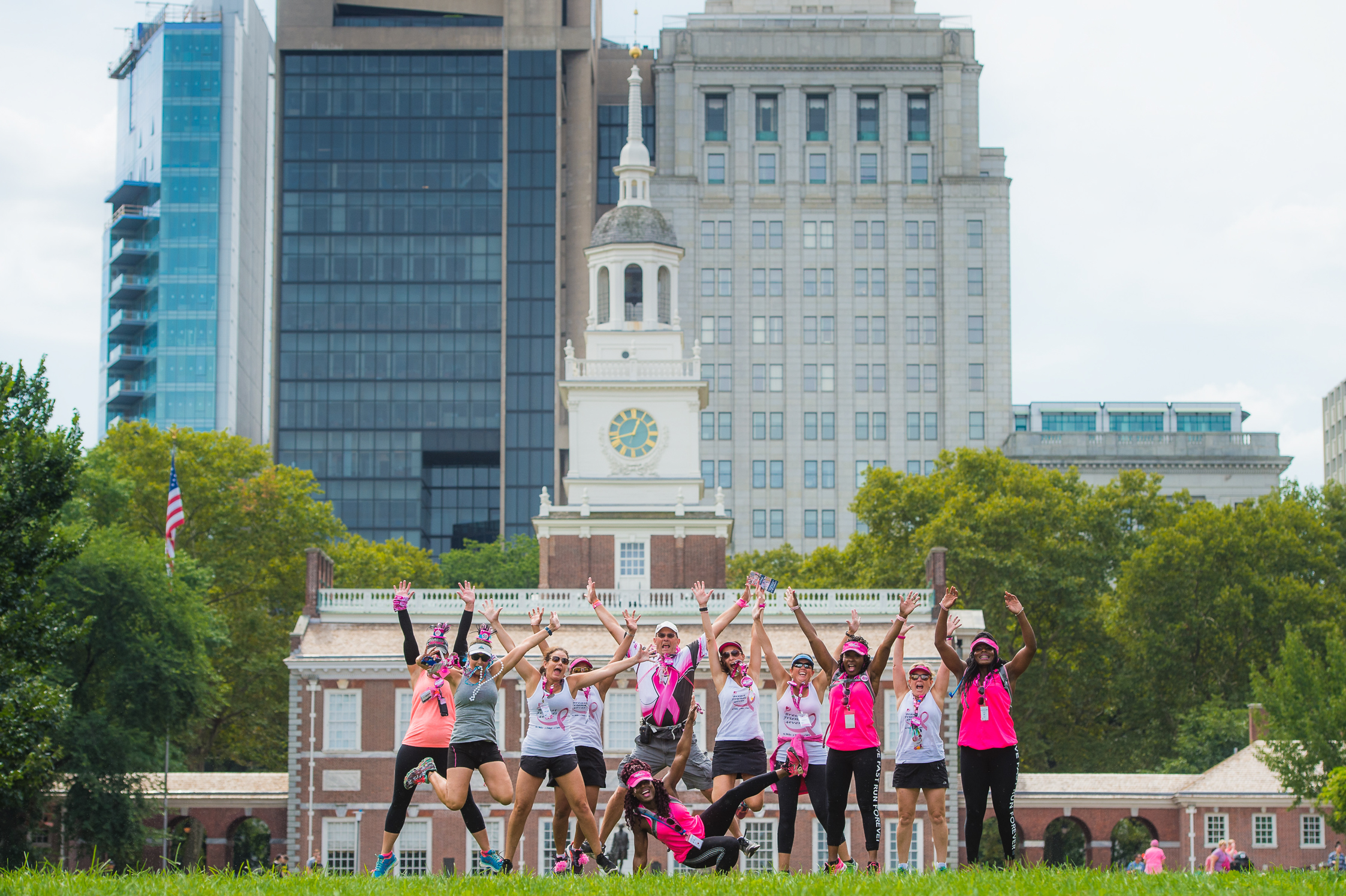
Day 2
What would to somebody who’s just been diagnosed with breast cancer?
Keep the hope. Our understanding of this complicated disease has grown immensely and has led to new approaches, like immunotherapy, that might work even on very complex tumors for which we do not have current therapeutic approaches. Also, get involved! Involvement of patient advocates really does change the landscape of research in ways that can impact everything from research project funding to how clinical trials are conducted.
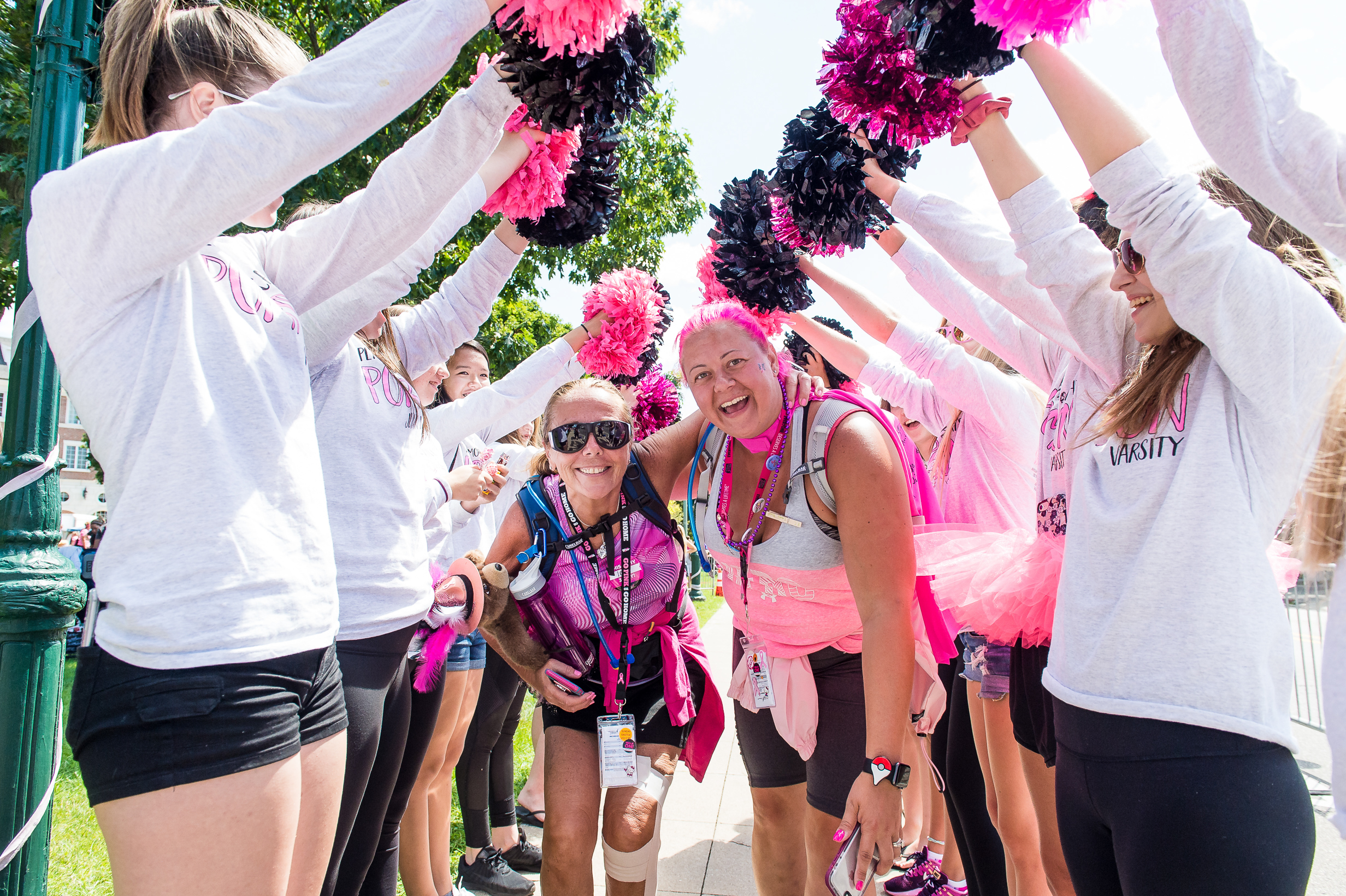
Cheering Station
Look at all of these enthusiastic supporters out along the route! How has working with patient advocates impacted your research from a patient perspective?
I have had patient advocates ask questions that have really challenged the “why” to what we planned to investigate. There are many research questions that are very scientifically interesting and important, but would not change patient care in the foreseeable future. Also, spending time in the clinic has made me realize the limitations of what can be done, and I’ve learned to prioritize our research efforts toward directions that can be practically executed in the clinic. Now, our lab is balanced between finding new discoveries that could eventually make a difference, and those that could make a difference now.
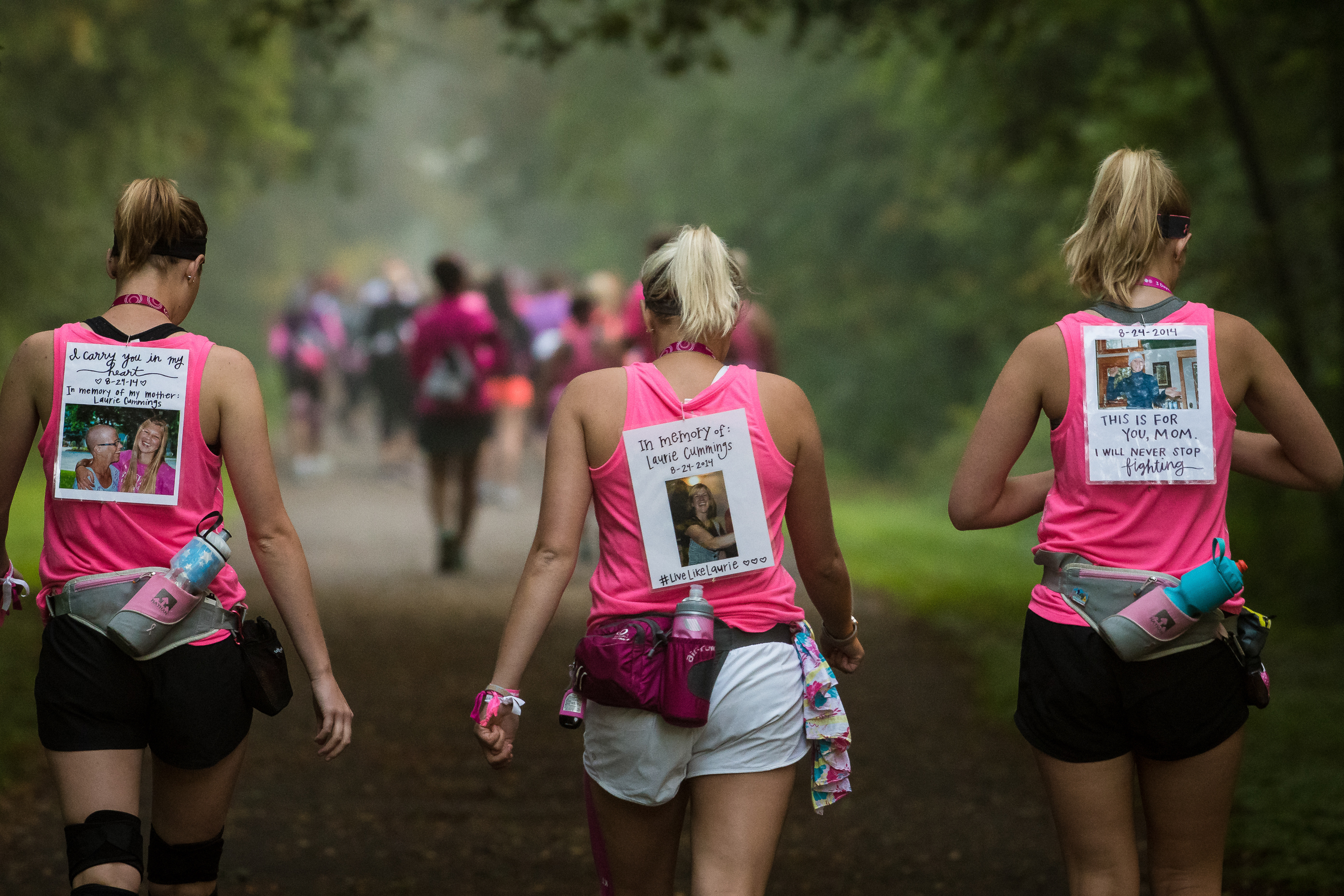
Mile 59
The finish line is in sight! Can you tell us about a defining moment for you when you realized the impact our work has in the fight against breast cancer?
We are about to open a Phase Ib clinical trial, which is based on our work in bone metastasis, which all started when I was a Komen postdoctoral fellow. It has taken 15 years of research in this new area, but we are excited to see the results, and what they could mean for women living with bone metastases. This would be a huge step in treating metastatic breast cancer, and making a significant impact in the lives of patients.
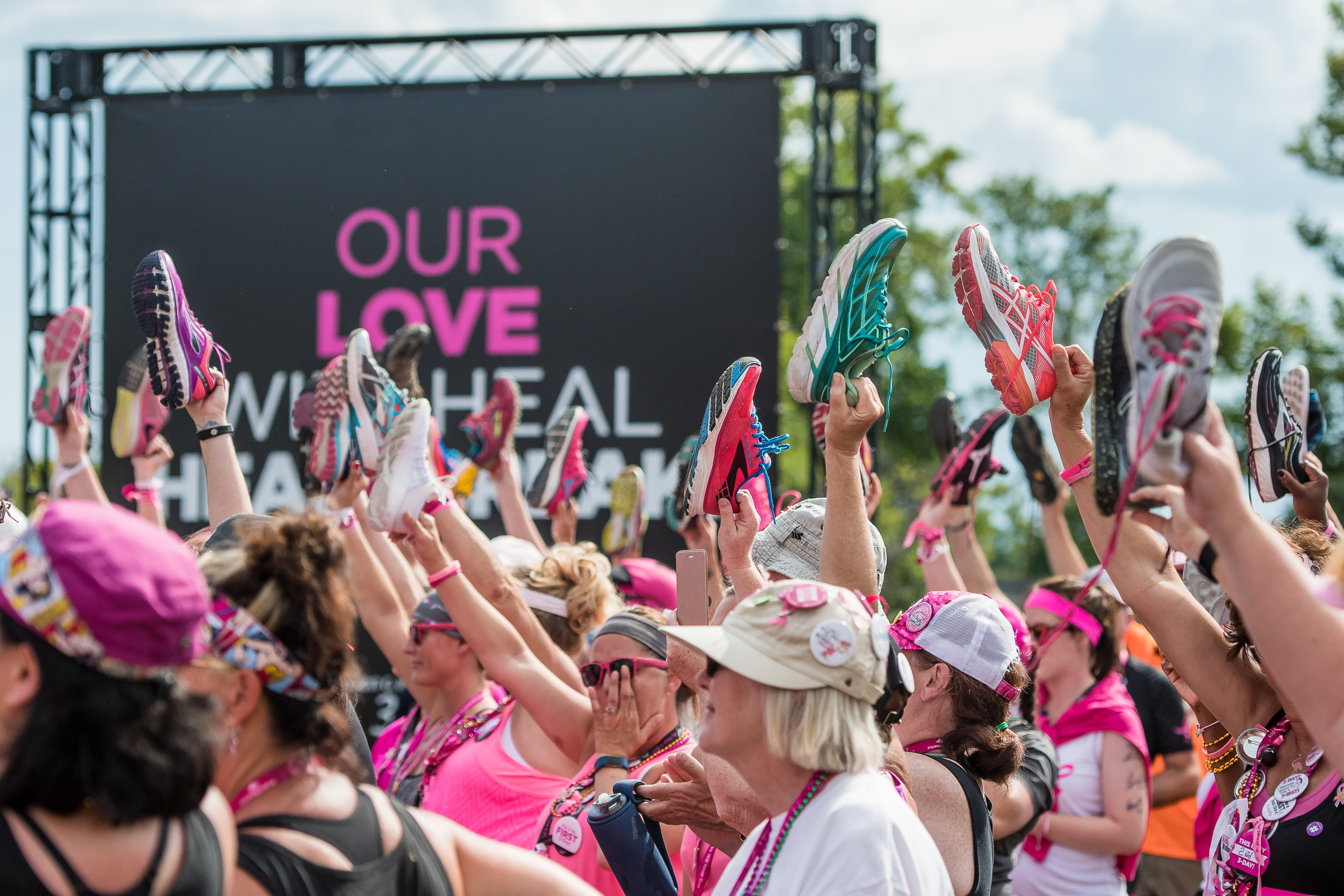
Closing Ceremonies
Thanks for walking us through your research, Dr. Welm! Any final thoughts you’d like to share with our walkers, crew and supporters?
My lab has been funded by Komen for many years, including several fellowships for my postdocs and we have published Komen-funded research in journals. None of these advancements would be possible without the support of Komen fundraisers, like the 3-Day participants.
Dr. Alana Welm is an Associate Professor at the University of Utah Huntsman Cancer Institute and has been a Komen Scholar since 2016. Since 1982, Susan G. Komen has funded more than $956 million in breast cancer research, second only to the U.S. government and more than any other nonprofit in the world. Learn more here.
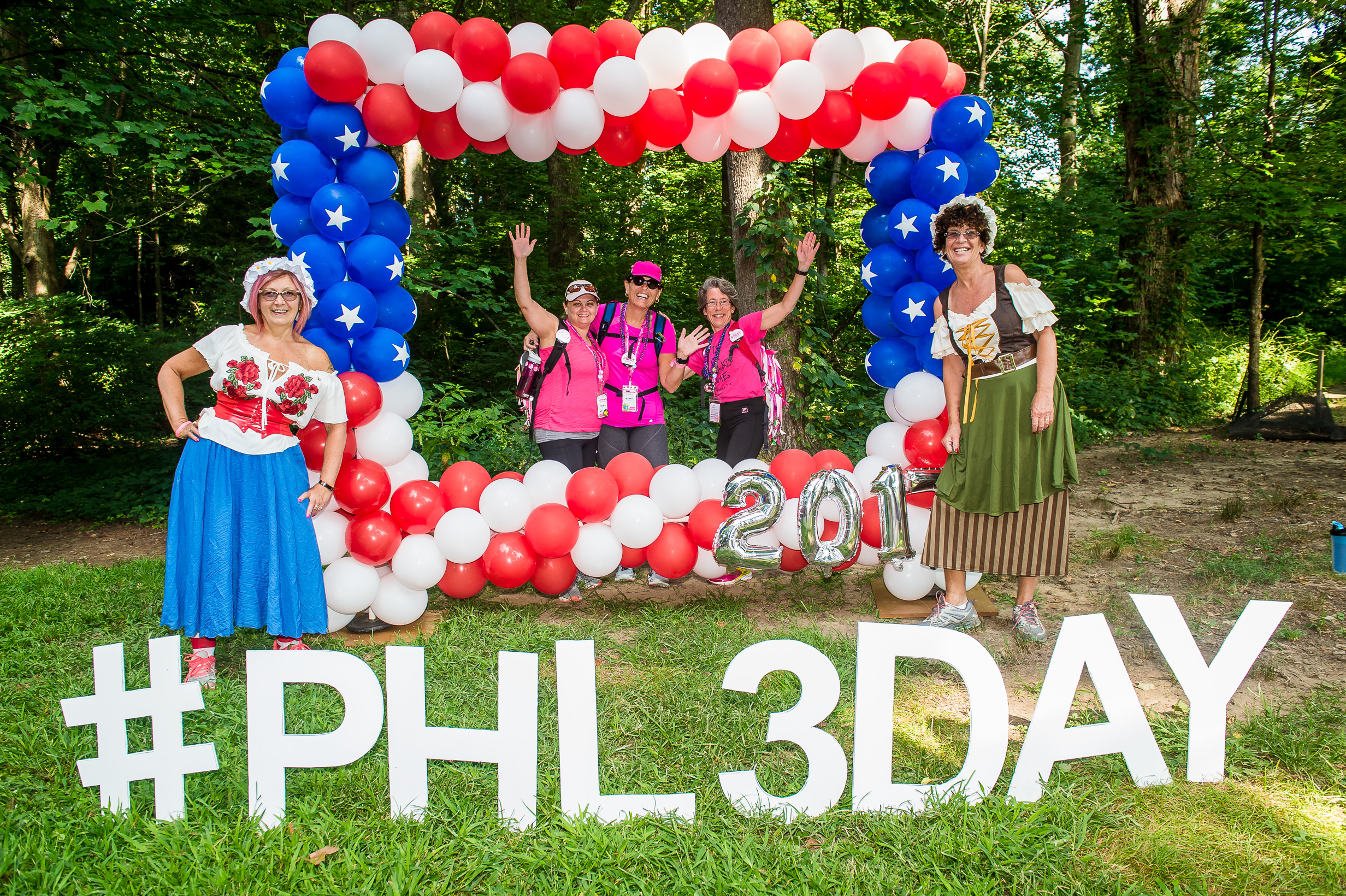
Pit Stop
Two things to know about Dr. Welm:
- To clear my head, I like to trail run or go fly fishing. Both of these activities force me to stop thinking about the lab for a while and push the “reset” button.
- My husband, Bryan Welm, also runs a breast cancer research lab. We have two children (ages 13 and 11), and live in Park City, Utah. They are well versed in breast cancer from conversations at our dinner table!
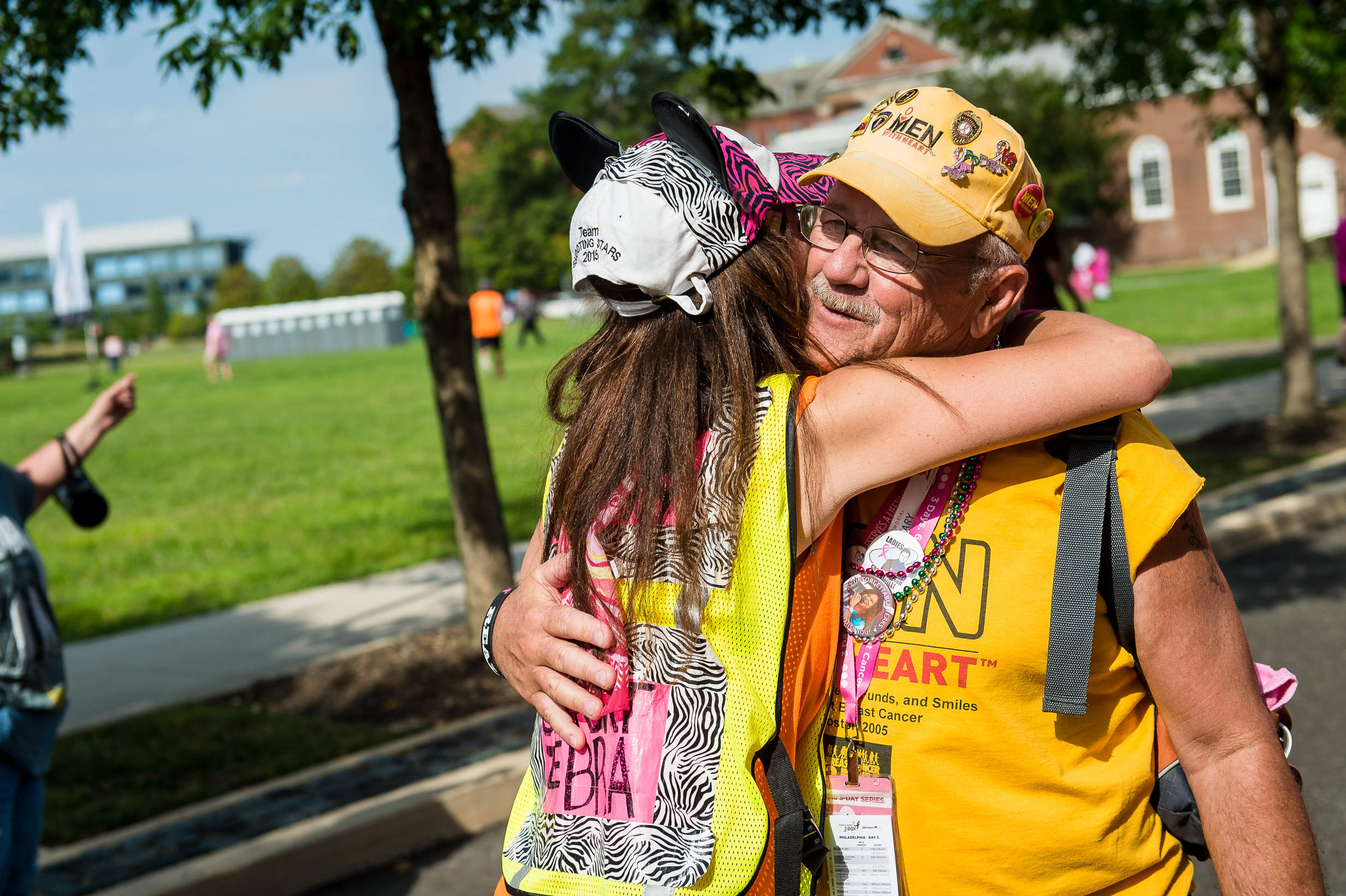
Grab and Go
Here are three ways you can use this information to help reach your 3-Day fundraising or recruiting goals:
- Breast cancer is the most common deadly cancer in women, so every step is a crucial one in the fight for a cure.
- Many research labs, postdoc fellowships and clinical trials are done thanks to Komen-funded research. None of the advancements that resulted from this work would be possible without the support of Susan G. Komen fundraisers, like the 3-Day.
- Since 1982, Susan G. Komen has funded $920 million in breast cancer research, second only to the U.S. government and more than any other nonprofit in the world. Your dollars are being put to real use!
